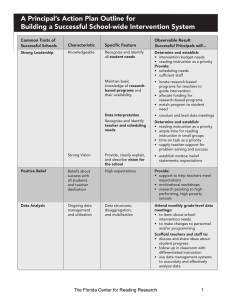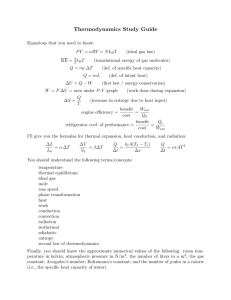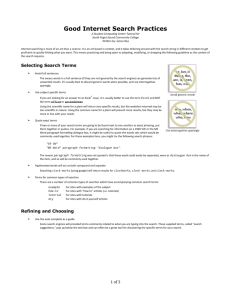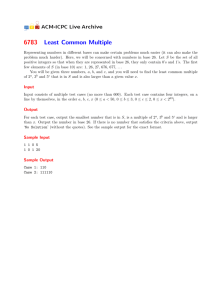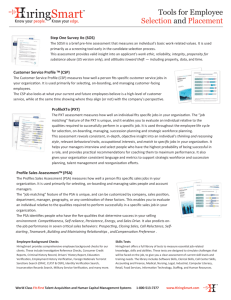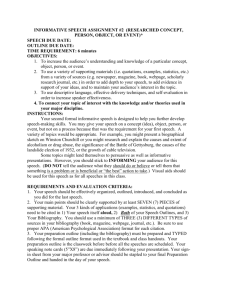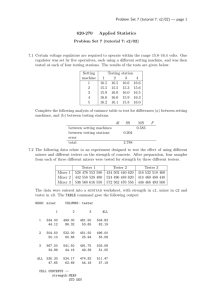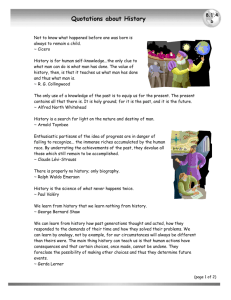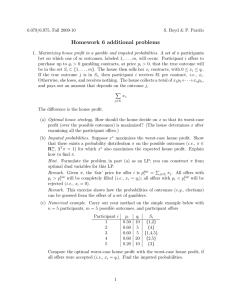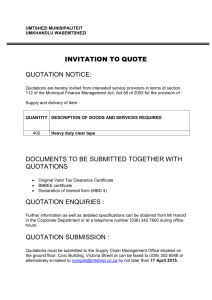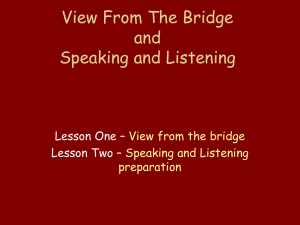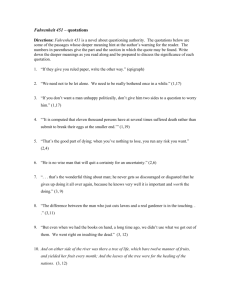Term Paper topics - Seattle Pacific University
advertisement
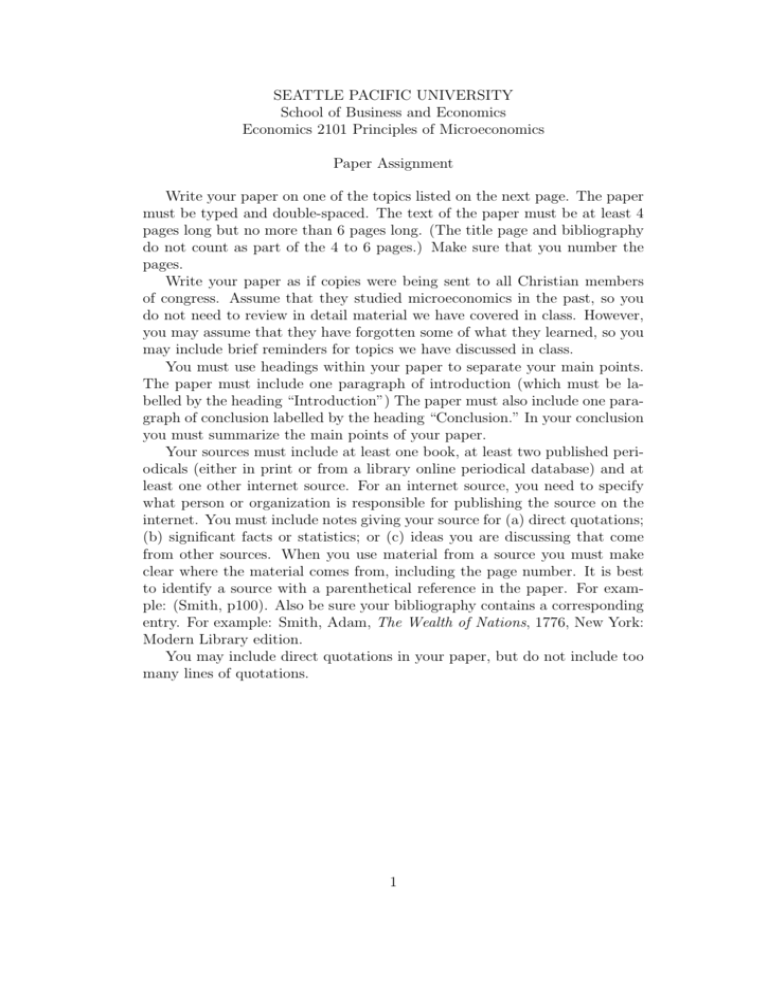
SEATTLE PACIFIC UNIVERSITY School of Business and Economics Economics 2101 Principles of Microeconomics Paper Assignment Write your paper on one of the topics listed on the next page. The paper must be typed and double-spaced. The text of the paper must be at least 4 pages long but no more than 6 pages long. (The title page and bibliography do not count as part of the 4 to 6 pages.) Make sure that you number the pages. Write your paper as if copies were being sent to all Christian members of congress. Assume that they studied microeconomics in the past, so you do not need to review in detail material we have covered in class. However, you may assume that they have forgotten some of what they learned, so you may include brief reminders for topics we have discussed in class. You must use headings within your paper to separate your main points. The paper must include one paragraph of introduction (which must be labelled by the heading “Introduction”) The paper must also include one paragraph of conclusion labelled by the heading “Conclusion.” In your conclusion you must summarize the main points of your paper. Your sources must include at least one book, at least two published periodicals (either in print or from a library online periodical database) and at least one other internet source. For an internet source, you need to specify what person or organization is responsible for publishing the source on the internet. You must include notes giving your source for (a) direct quotations; (b) significant facts or statistics; or (c) ideas you are discussing that come from other sources. When you use material from a source you must make clear where the material comes from, including the page number. It is best to identify a source with a parenthetical reference in the paper. For example: (Smith, p100). Also be sure your bibliography contains a corresponding entry. For example: Smith, Adam, The Wealth of Nations, 1776, New York: Modern Library edition. You may include direct quotations in your paper, but do not include too many lines of quotations. 1 Your paper must have acceptable grammar and spelling. Please proofread your paper carefully and clearly mark corrections for typographical errors. If the presentation of your paper is unacceptable it will be returned to you and you must resubmit it in acceptable form. Note: your paper must have acceptable form before its content will be considered. For each topic, you should make some reference to the economic theory we have discussed in class and to a biblical Christian view of the question. If you think that a Christian view of the topic is different than the view held by most non-Christians, state what you think those differences are. If different Christians might have different viewpoints, state what those differences are. If you think the opinions about this topic held by non-Christians are not significantly different than the opinions held by Christians, then briefly state why you think that is so. You should have someone else read the paper before you turn it in. This is a checksheet of items that will be considered when the paper is graded: 1. Does your paper include a specific government policy recommendation, and is it clearly stated in the introduction? 2. Is evidence given to support the facts you mention? 3. Is the evidence accurate, specific, and current? 4. Are sources for facts and quotations properly attributed? 5. Is a bibliography included to list the sources? 6. Have you considered any important implications of your proposal? 7. Is the paper concise (not a lot of unecessary words)? 8. Have you included a comment about a Christian view? 9. Have you considered diverse arguments that oppose your view, and developed an answer to them? 10. Does the paper have smooth transitions (rather than jump around from topic to topic)? 11. Is the spelling accurate? Are the correct words used? 12. Does the paper have correct sentence structure and punctuation? 13. Is the paper organized into paragraphs and sections? 2 Topics 1. Do you support the principle that a business should follow the profit motive? If so, give a careful argument why this should be the case. If not, explain carefully what policies you think the government should follow to prevent businesses from following the profit motive. As part of your answer, include an example of a business helping society by following the profit motive, and include an example of a business hurting society by following the profit motive. 2. Discuss a specific example of a government policy that has been established for the purpose of protecting the environment. Be sure to include a source from an economist discussing this policy. 3. Develop a careful statement in which you describe what constitutes a fair distribution of income. Make sure you clearly state what values you think are important. If you support the current U.S. income distribution, then carefully explain why; if not, state what policy changes you wish the government would make. 4. Analyze the U.S. welfare program (now Temporary Assistance to Needy Families, or TANF; formerly Aid to Families with Dependent Children, or AFDC). Explain the changes made by Congress in 1996, and explain whether or not you support these changes. 5. Discuss the question of how society should make decisions concerning medical care. Note that these decisions require society to make decisions about how to allocate resources. Include examples of a couple different specific medical procedures, and describe the decision process that you think should determine whether those procedures are justified. Include an evaluation of how this decision process will happen under the health care act passed by Congress in 2010. 6. Analyze the effects of a government policy that imposes a ceiling price on a good, focusing on a specific instance such as (a) a city with rent control; (b) energy regulation in the 70s; (c) the price controls of 19711973; or (d) price controls during World War II. Give your opinion of this policy. 7. Discuss the experience of one of the countries (in Eastern Europe or the Soviet Union or China) that moved away from a centrally controlled economic system. Discuss the advantages or disadvantages that this country faces in moving to a market economy. 8. Discuss whether antitrust laws should be applied to the current dispute over e-books, involving Apple, Amazon, and book publishers. 3 9. Discuss a specific example of a U.S. government policy to restrict imports, or else discuss a specific example of WTO policy toward trade restrictions. 10. Discuss the role of agricultural subsidies in the U.S. In particular, discuss the Agriculture Act of 2014 (Public Law 113-79). 11. Discuss the policies of the city of Seattle and King county related to zoning and land use, and how these policies affect homelessness and home affordability. For example, should the city impose height limits on buildings? Should the city limit the number of dwellings that can be built on a property? 4
